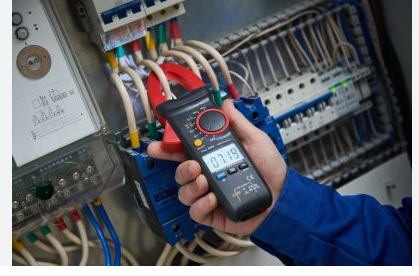
Every homeowner dreads the flicker of faulty wiring or the mysterious hum of a malfunctioning electrical unit. In times like these, understanding the role of a residential electrician can bring much-needed tranquility to a potentially chaotic situation. In this comprehensive guide, we’ll explore the duties, training, and qualities that make a residential electrician indispensable for every abode.
The Role of a Residential Electrician
Residential electricians are the wizards behind the scenes, ensuring the heart of your home—its electrical system—beats flawlessly. They don’t just set up your lighting fixtures or fix a broken outlet; they safeguard your family’s safety and your property’s integrity.
Their responsibilities include:
• Installation and maintenance of electrical systems: From hooking up home theaters to ensuring your circuits can handle the holiday lights, their job is to install and maintain electrical systems, big and small.
• Inspections and safety measures: Residential electricians conduct thorough inspections to preempt dangerous electrical mishaps. They also implement safety measures such as installing surge protectors and fixing improperly installed systems.
• Problem-solving: When you’re scratching your head over a non-functioning appliance or a tripped breaker, the electrician diagnoses and rectifies the issue with expertise.
In essence, the job of a residential electrician is to keep your home running smoothly and safely.
The Education and Skills of an Electrician
To become a residential electrician, one must have a high school diploma, followed by technical education and on-the-job training. They need to have:
• Technical knowledge: Understanding electrical theory, blueprint reading, and the National Electric Code (NEC) is crucial.
• Practical skills: Electricians must be adept with various tools and have a keen eye for detail.
• Critical thinking: Problem-solving skills are indispensable, as electricians often need to deduce complex issues that lie within the walls of a home.
• Customer service: Often, electricians must communicate problems and solutions to homeowners.
Attending a vocational school or an apprenticeship program is the standard route, followed by licensing in most states.
Why a Professional Electrician is Non-Negotiable
While the average homeowner may be adept at simple fixes, Electrician in Reno work is no DIY project. The risks are too high, and the complexities often exceed layman’s knowledge. Here’s why you should always opt for a professional:
• Safety: The most salient reason is safety. Incorrect electrical fixes can lead to fires, shocks, and even electrocution.
• Legal compliance: Electrical work must adhere to local regulations. A professional electrician ensures that your home’s electrical work complies with the law, which is particularly important if you intend to sell your house in the future.
• Insurance: Should a fire or other incident occur due to electrical malfunction, insurance companies often require proof of professional installation or repair.
Finding the Right Electrician for You
Selecting an electrician is more than just a Google search. Recommendations from friends, family, or online reviews can help. Ask potential candidates these questions:
• Are you licensed and insured?
• What is your area of expertise?
• Can you provide a quote for the work?
• Do you offer any warranty or guarantee on your work?
A trustworthy electrician will be transparent about their credentials and happy to answer your questions.
Conclusion
Residential electricians are the unsung heroes of the home, ensuring your dwellings are safe and functional. Our guide has emphasized their significance, their education and skills, the dangers of DIY electrical work, and how to find the right professional for the job. Respect their craft, and when in doubt, always call in the experts—it’s a bright idea.




